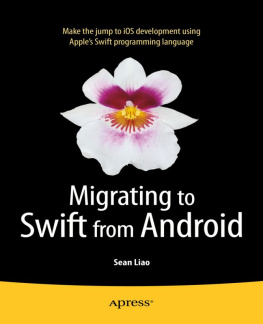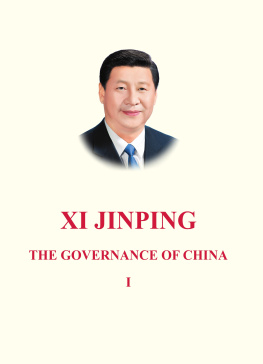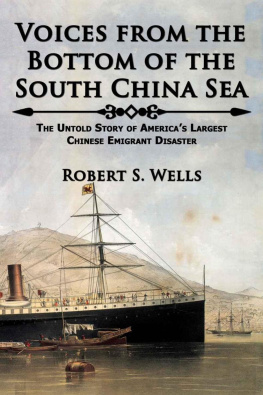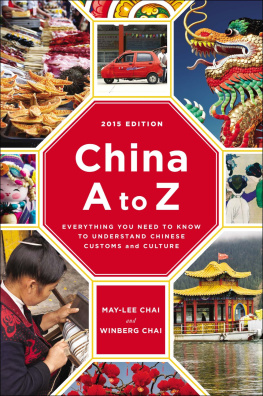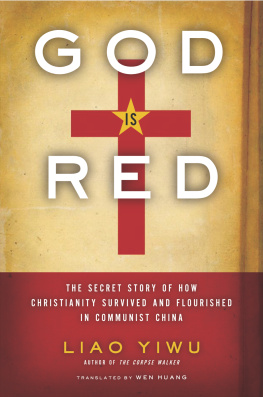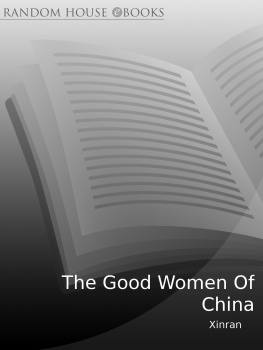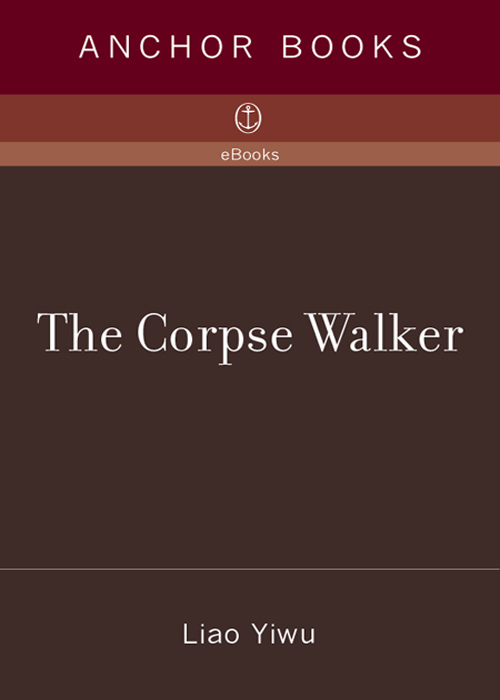
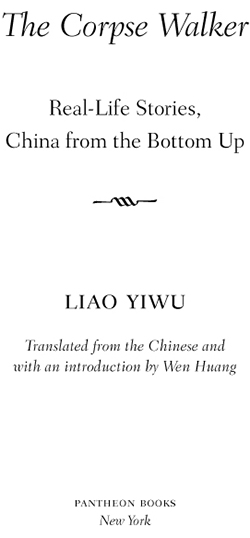
The Corpse Walker
Contents
Foreword
To hear a new voice is one of the great excitements that a book can offerand through Liao Yiwu we hear more than two dozen original voices that have a great deal to say. Liao is at once an unflinching observer and recorder, a shoe-leather reporter and an artful storyteller, an oral historian and deft mimic, a folklorist and satirist. Above all, he is a medium for whole muzzled swathes of Chinese society that the Party would like to pretend do not exist: hustlers and drifters, outlaws and street performers, the officially renegade and the physically handicapped, those who deal with human waste and with the wasting of humans, artists and shamans, crooks, even cannibalsand every one of them speaks more honestly than the official chronicles of Chinese life that are put out by the state in the name of the people.
Liao was shaped as a writer by the harshest of experiences: he nearly starved to death as a child and his father was branded an enemy of the people; he was thrown in jail for writing poems that spoke truthfully about China's Communist Party and he was beaten in jail for refusing to shut up; and he discovered in jail the enormous value of listening to others like him whom the authorities wanted to keep forever unheard. So Liao writes with the courage of a man who knows loss and doesn't fear it. There is nothing to make him take notice like an official injunction against noticing, nothing to make him listen like official deafness, nothing that drives him to make us see than the blindness that Communist officialdom seeks to impose. But it is not merely defiance, and it is hardly political polemic, that drives the vitality of the stories in this collection. What makes Liao's encounters with his characters so powerful is the fact that he clearly delights in their humanity, however twisted its expression, and he shows his respect for his subjects in the most fundamental way: he lets them speak for themselves.
There is no question that Liao Yiwu is one of the most original and remarkable Chinese writers of our time. It is, however, truer to say that he is one of the most original and remarkable writers of our time, and that he is from China. Yes, his language is Chinese, his country and its people are his subject, and his stories originate from intensely local encounters. But even to someone who has never been to China, and who can know Liao's work only through Wen Huang's translations, these stories have an immediacy and an intimacy that crosses all boundaries and classifications. They belong to the great common inheritance of world literature.
Liao Yiwu is an original, but it seems a very good bet that writers as diverse as Mark Twain and Jack London, Nikolai Gogol and George Orwell, Franois Rabelais and Primo Levi would have recognized him at once as a brother in spirit and in letters. He is a ringmaster of the human circus, and his work serves as a powerful reminderas vital and necessary in open societies lulled by their freedoms as it is in closed societies where telling truthful stories can be a crimethat it is not only in the visible and noisy wielders of power but equally in the marginalized, overlooked, and unheard that the history of our kind is most tellingly inscribed.
Philip Gourevitch
November 2007
Introduction: The Voice of China's Social Outcasts
When the Chinese government tanks rolled into Beijing on the night of June 3, 1989, and brutally suppressed the students' pro-democracy movement, Liao Yiwu was home in the southwestern province of Sichuan. The news shocked him to the very core. Overnight, Liao composed a long poem, Massacre, that portrayed with stark imagery the killing of innocent students and residents as vividly as Picasso painted the Nazi bombing massacre in the town of Guernica.
Without any chance of having his poem published in China, Liao made an audiotape of himself reciting Massacre, using Chinese ritualistic chanting and howling to invoke the spirit of the dead. The tape recording was widely circulated via underground channels in China. In another poem written at that time, he described his sense of frustration at being unable to fight back.
You were born with the soul of an assassin,
But at a time of action,
You are at a loss, doing nothing.
You have no sword to draw,
Your body a sheath rusted,
Your hands shaking, Your bones rotten,
Your near-sighted eyes cannot do the shooting.
That tape of Massacre as well as a movie he made with friends of its sequel, Requiem, caught the attention of the Chinese security police. In February 1990, as he was boarding a train to Beijing, police swooped down on him. Six of his poet and writer friends, as well as his pregnant wife, were also arrested simultaneously for their involvement in his movie project. As the ringleader, Liao received a four-year sentence.
Since then Liao has permanently been placed on the government blacklist. Most of his works are still banned in China, where he lives, as a street musician in a small town in southwestern Yunnan Province, under the watchful eyes of the public security bureau. He has been detained numerous times in the past for conducting illegal interviews and for exposing the dark side of Communist society in his documentary-style book Interviews with People from the Bottom Rung of Society. The twenty-seven stories that appear in this book are translated and adapted from that collection as well as from his recent writings posted on overseas Chinese-language Web sites.
Liao was born in 1958, in the year of the dog. It was also the year that Mao Zedong launched the Great Leap Forward, a campaign aimed at industrializing China's backward peasant economy. The forced collectivization of agriculture and the blind mobilization of the whole country to adopt primitive ways of producing iron and steel led to a famine in 1960 that claimed the lives of some thirty million people.
During the famine, he suffered from edema and was dying. Out of desperation, Liao's mother carried him to the countryside, where an herbal doctor held me over a wok that contained boiling herbal water. The herbal steam miraculously restored him.
In 1966, Liao's family was deeply affected when his father, a schoolteacher, was branded a counterrevolutionary during the Cultural Revolution. His parents filed for divorce to protect their children from the father's pariah status. Life was hard without his father. Among his childhood memories, there is one he still recalls vividly: A relative gave my mother a government-issued coupon that was good for two-meters of cloth. But, when mother sold it on the black market to buy food for us, she got caught by the police and was paraded, along with other criminals, on the stage of the Sichuan Opera House in front of thousands of people. After several of my classmates who had seen my mother told me about it, I was devastated.
After high school, Liao traveled around the country, working as a cook, and then as a truck driver on the Sichuan-Tibet Highway. In his spare time he read previously banned Western poets, from Keats to Baudelaire. He also began to compose his own poems and to publish in literary magazines.
Throughout the 1980s, Liao became one of the most popular new poets in China and contributed regularly to influential literary magazines as well as to underground publications that published contemporary Western-style poems considered by the government to be spiritual pollution. In the spring of 1989, two prominent magazines took advantage of the temporary political thaw and carried Liao's long poems The Yellow City and Idol. In the poems he used allegorical allusions to criticize what he called a system paralyzed and eaten away by a collective leukemia. He claimed that the emergence of Mao was the symptom of this incurable cancer. Alarmed by the poems' bold anti-Communist messages, police searched Liao's home and subjected him to thorough interrogations, depositions, and short-term detention. The magazine publishers were also disciplined; one magazine was ordered to shut down.
Next page


